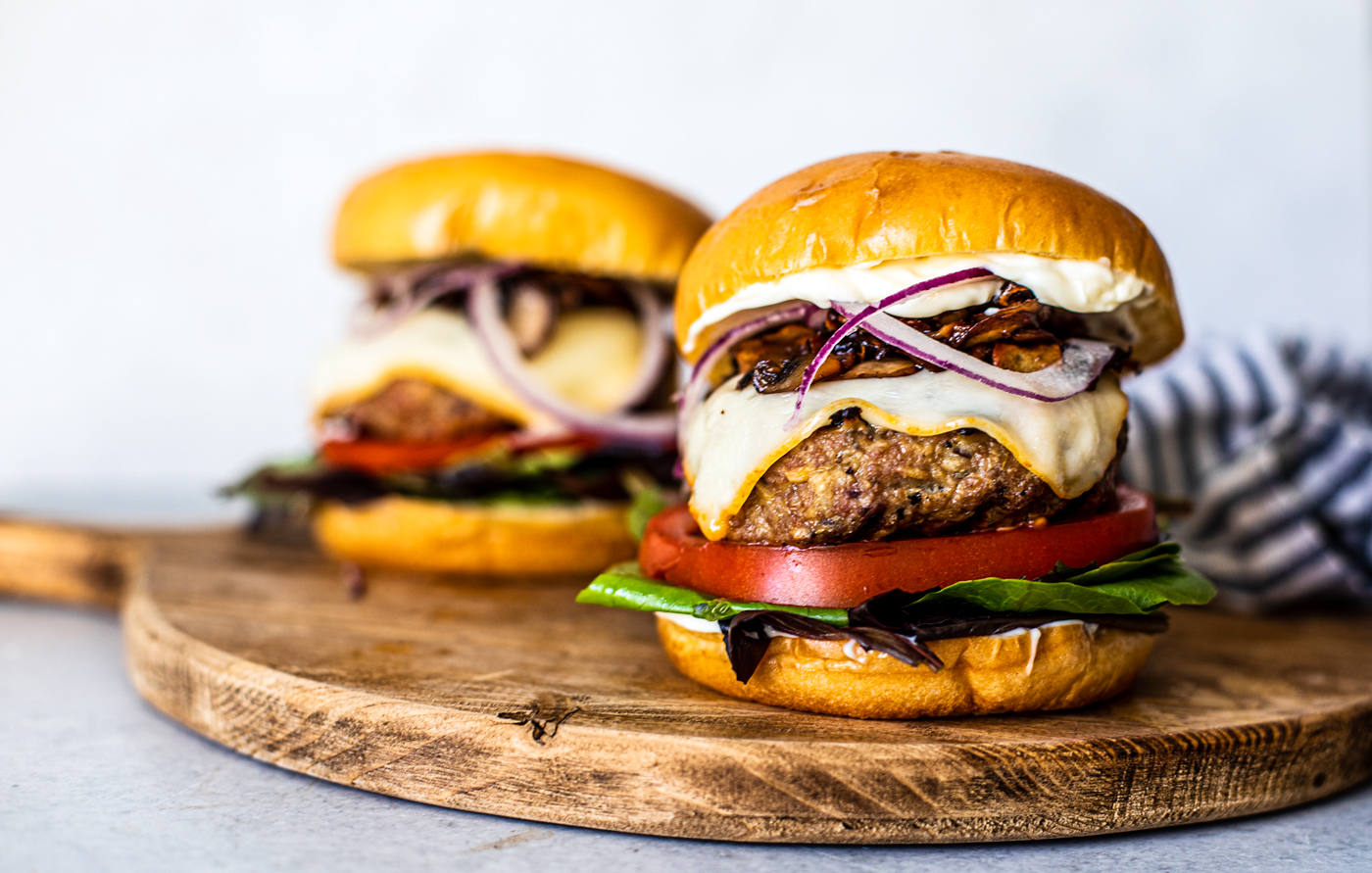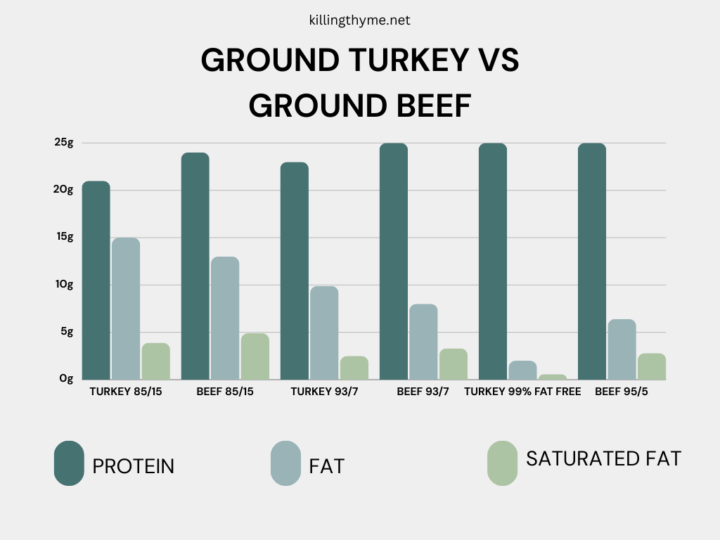Ground turkey is swapped in for ground beef a lot these days. But is it healthy? From protein to calories, we break things down.
Turkey burgers have become a popular alternative to traditional beef burgers. But are turkey burgers actually healthier, and are they a good option for your diet? There are several factors to consider when evaluating the nutritional value of turkey burgers.
Lower in Saturated Fat
One of the main proposed benefits of turkey burgers is their lower saturated fat content compared to beef Saturated fat has been linked to increased LDL cholesterol levels and heart disease risk Ground turkey contains much less saturated fat than regular ground beef,
For example, a 4-ounce turkey burger made with 93% lean ground turkey has around 1.5 grams of saturated fat, while a 4-ounce beef burger made with 90% lean ground beef contains about 5 grams of saturated fat. So in terms of saturated fat, turkey burgers have an advantage.
Higher in Polyunsaturated Fats
In place of saturated fats turkey contains higher amounts of polyunsaturated fats. These are considered “healthy fats” that have been shown to reduce LDL cholesterol and lower heart disease risk when substituted for saturated fats. The higher polyunsaturated fat content contributes to the healthier fat profile of turkey meat.
More Protein Per Calorie
Ounce for ounce, turkey burgers provide more protein than beef burgers when comparing equal cooked weights. For example, a 4-ounce cooked turkey burger has about 22 grams of protein, versus 18 grams in a beef burger of the same weight.
So for the same amount of calories, turkey packs in more protein, which is beneficial for building muscle, curbing hunger and losing weight. The higher protein content makes turkey burgers more filling.
Lower in Heme Iron
While beef contains more iron than turkey it is primarily in the form of heme iron. Though more bioavailable excess heme iron can be pro-oxidative and linked to health risks if overconsumed.
Turkey contains more non-heme iron, which is safer in high amounts. So for people prone to high iron levels, turkey burgers may be a smarter choice.
Potentially Dry Without Precautions
The biggest downside to turkey is that it tends to cook up drier than beef. Without proper precautions, turkey burgers can become overly dry and bland. Choosing fattier turkey blends and adding binders like egg yolks helps maintain moisture.
Well-made turkey burgers with sufficient fat content can match beef burgers for juiciness. But improper preparation will accentuate turkey’s tendency towards dryness.
Shorter Cooking Times
Turkey burgers require much less cooking time than beef to reach safe internal temperatures. Beef burgers should cook until 160°F internally to kill potential E. coli bacteria. Turkey only needs to reach 165°F to eliminate salmonella risks.
The shorter cook time helps turkey burgers retain moisture and prevents overcooking. It also allows quicker, more convenient preparation when you don’t want to spend lots of time grilling.
Potential for Added Sodium
To boost flavor in lower fat turkey blends, manufacturers sometimes add more sodium during processing compared to beef. It’s important to check nutrition labels, as certain turkey burger brands can be high in sodium.
When buying turkey burgers, look for no-salt-added or low-sodium options to avoid excess sodium intake. Or make your own turkey burger blend using minimal salt and sodium.
Depends on the Cut and Fat Content
Not all turkey burgers are created equal. Ground turkey can range from very lean breast meat to fattier cuts containing skin and dark meat. The same applies to beef.
Comparing the highest fat ground beef with the leanest ground turkey ignores the reality that both meats have healthful options. Overall fat and calorie content depends more on meat cut and fat percentage than type alone.
Same Beneficial Nutrients
Like beef, turkey contains valuable nutrients including B vitamins, selenium, zinc and phosphorus. Turkey also provides small amounts of heart-healthy fats like omega-3s. Both meats can fit into a healthy diet when consumed in moderation.
So in terms of nutritional value, turkey and beef burgers are more similar than different. The key is choosing quality cuts and preparing them properly.
Better When Made at Home
Turkey burgers at restaurants tend to be pumped with cheese, condiments and other unhealthy toppings that drive up calories. Homemade turkey burgers can be seasoned and prepared without these excesses.
Controlling ingredients and portions makes homemade turkey burgers much more diet-friendly than restaurant versions. This applies equally to beef burgers.

Ground Turkey vs Ground Beef
When it comes to choosing between the two, it comes down to what an individual’s goals are. In most cases, weight loss and heart health are the two big factors when reducing red meat consumption in favor of lean proteins.
In general, consuming less saturated fat is ideal. But both choices are nutritious foods! They both give us the protein, fat, vitamins, and minerals we require, and although red meat has been vilified over the years, it can absolutely be part of a healthy diet in moderation.
That’s the key to any healthy lifestyle: moderation and balance.
You can find an in-depth nutritional comparison here, but here’s a quick glance to give you a quick visual.

How Many Calories Are in Ground Turkey?
Calories depend on the lean-to-fat ratio and, in the end, how the dish itself is cooked and prepared. But let’s crack down on uncooked ground turkey to get an idea.
Grass-Fed Beef Burgers vs. Turkey Burgers: Which Is Healtheir?
FAQ
How healthy is a turkey burger?
Are turkey burgers healthy to lose weight?
What is the healthiest meat for burgers?
Are turkey burgers healthier than chicken burgers?
